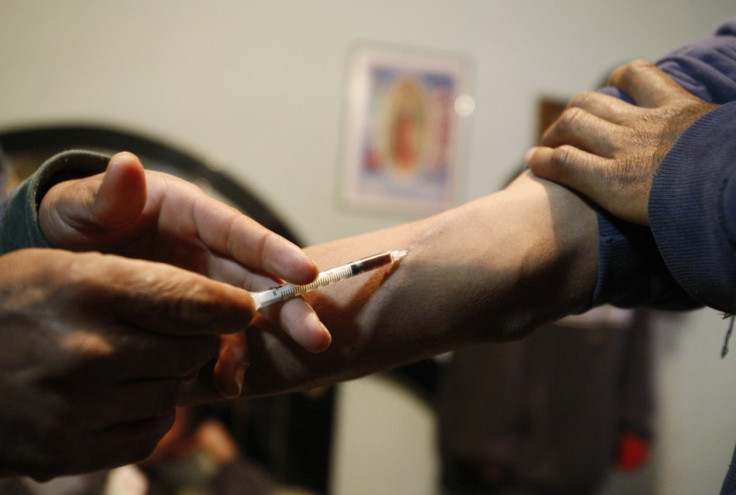Living With Drugs: France approves safe injection rooms for users

France has approved drug consumption rooms where drug users can consume their drugs under the supervision of health professional.
On Tuesday 7 April, the National Assembly adopted the Article 9 of a draft law on health that allows safer drug consumption rooms, after a very lively, four-hour debate.
Opposition deputies from the UMP party vigorously opposed the adoption denouncing a "first step towards the legalisation of drugs", the creation of "no-go zones" or sending "incomprehensible messages towards the youth".
"Our position is not a moral position but a pragmatic and realistic position," the Minister of Health behind the bill, Marisol Touraine, told critics.
The much criticised experiment will be offered in Paris, Bordeaux and Strasbourg, where it will be tested over the coming years.
No prosecution
Under the draft law, drug users cannot be prosecuted for "unlawful use and unlawful possession of drugs" within these spaces, as long as the amount of owned drug is limited to "personal use only".
These drug consumption rooms will be managed by a multidisciplinary team of professionals working in the drop-in and support centres, which work to reduce risk among drug users who take drugs in poor hygienic conditions, often in the street.
Touraine said the goal "is not to trivialise (or) to facilitate drug use but to take into account the situations that exist, whether we support them or not, whether they can be seen or not".
There are more than 80,000 drug injectors in France and 100 deaths from overdosing each year.
"It is not by blacking out this social reality that will ensure that this reality does not exist," said the Minister said in front of the Assembly.
Reduction in criminal penalties
Already operating in 10 countries around the world, including Canada, Australia, Germany and Spain, drug consumption rooms vary in their exact model.
In 2013, an independent drugs commission, headed up by Tony Blair's former drug-tsar Mike Trace, proposed pilot projects to be rolled out in Brighton, Darlington and London.
According to the Global Drug Survey 2014, adopting safer drug using practices has the potential to save lives, reduce emergency medical service use and promote healthier less harmful drug use.
Dr Adam Winstock, managing director and founder of Global Drug Survey, stated that: "The overwhelming finding across countries was not that a reduction in criminal penalties would encourage hoards of non-drug users to try drugs or for current drug users to increase their use."
He added: "Instead it was that people who use drugs would be more open with their family and friends about their use and more likely to seek help or advice about the use and associated health harms."
© Copyright IBTimes 2025. All rights reserved.




















